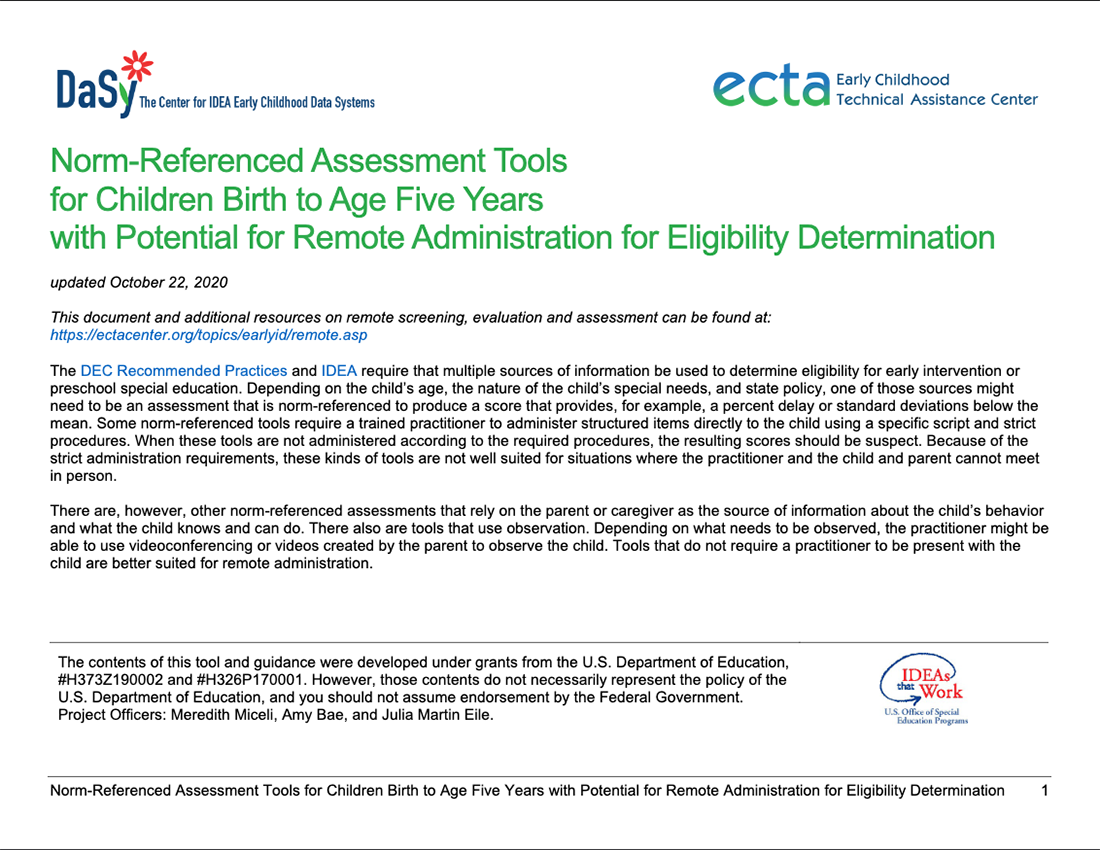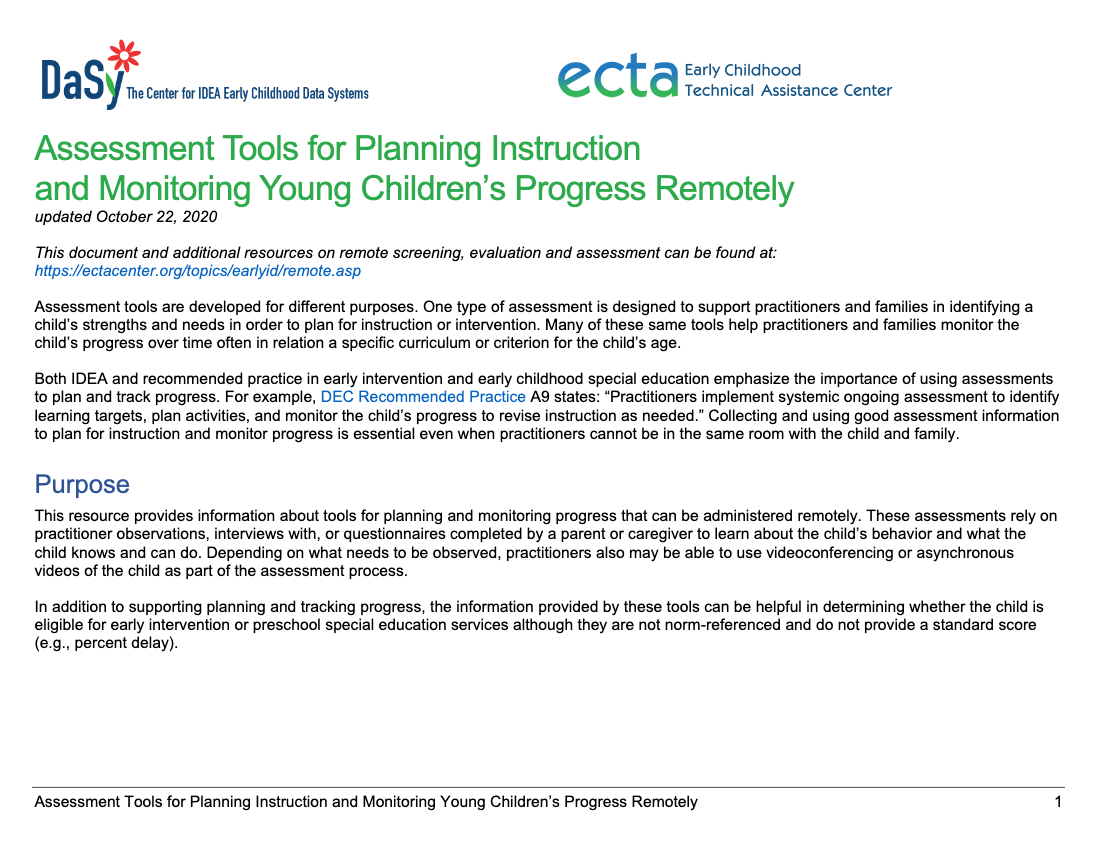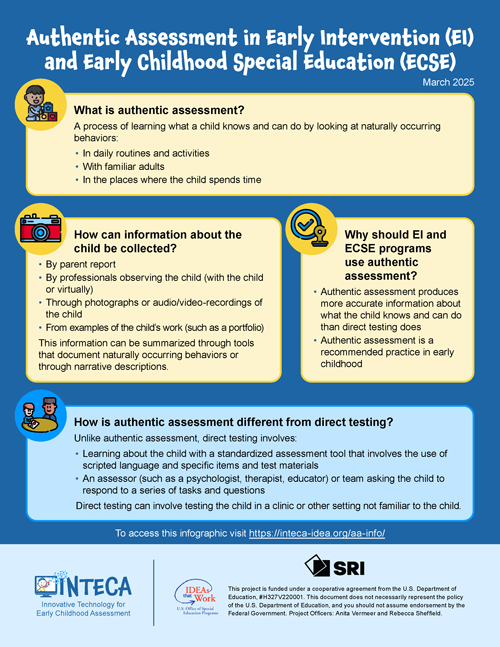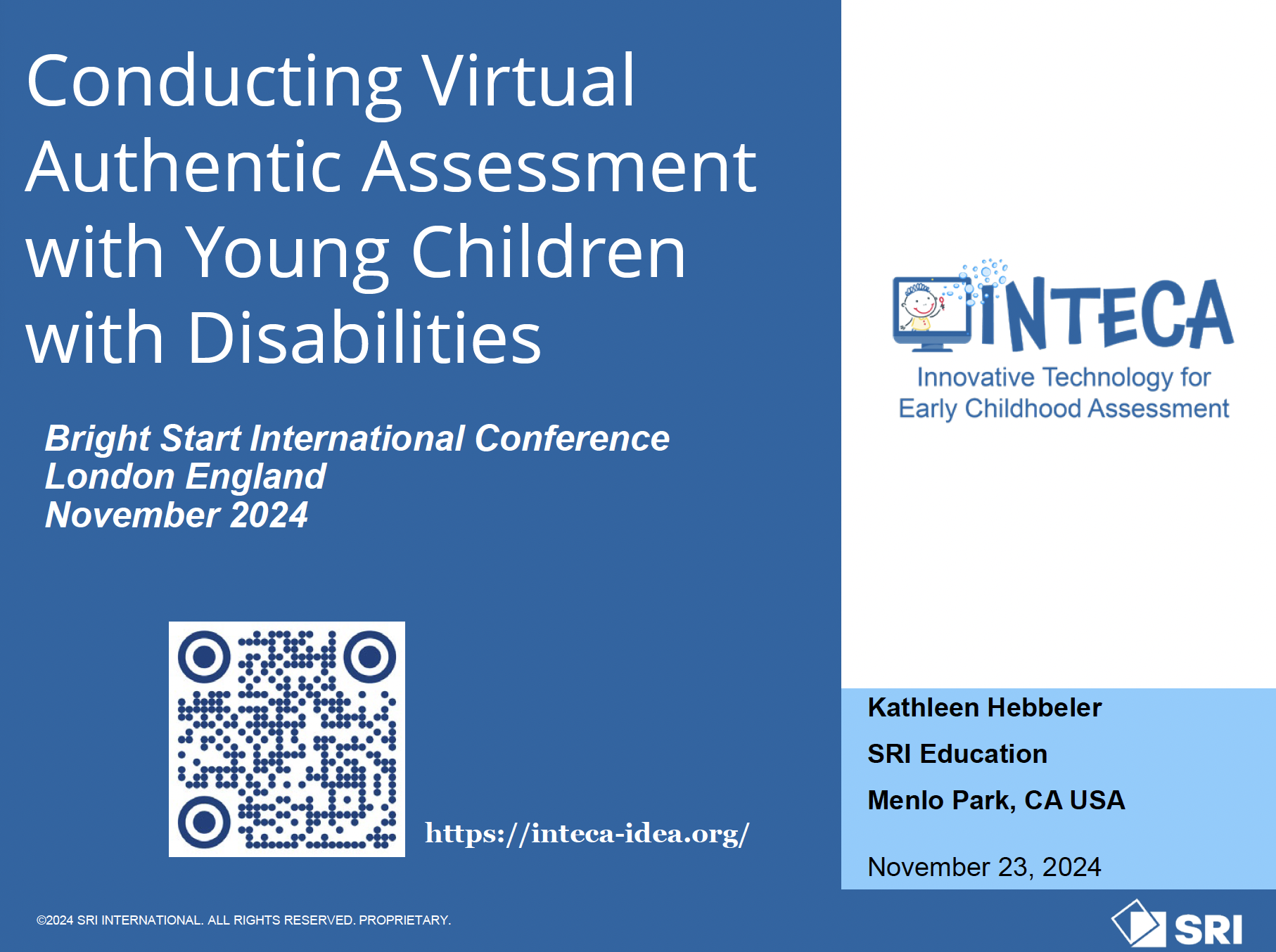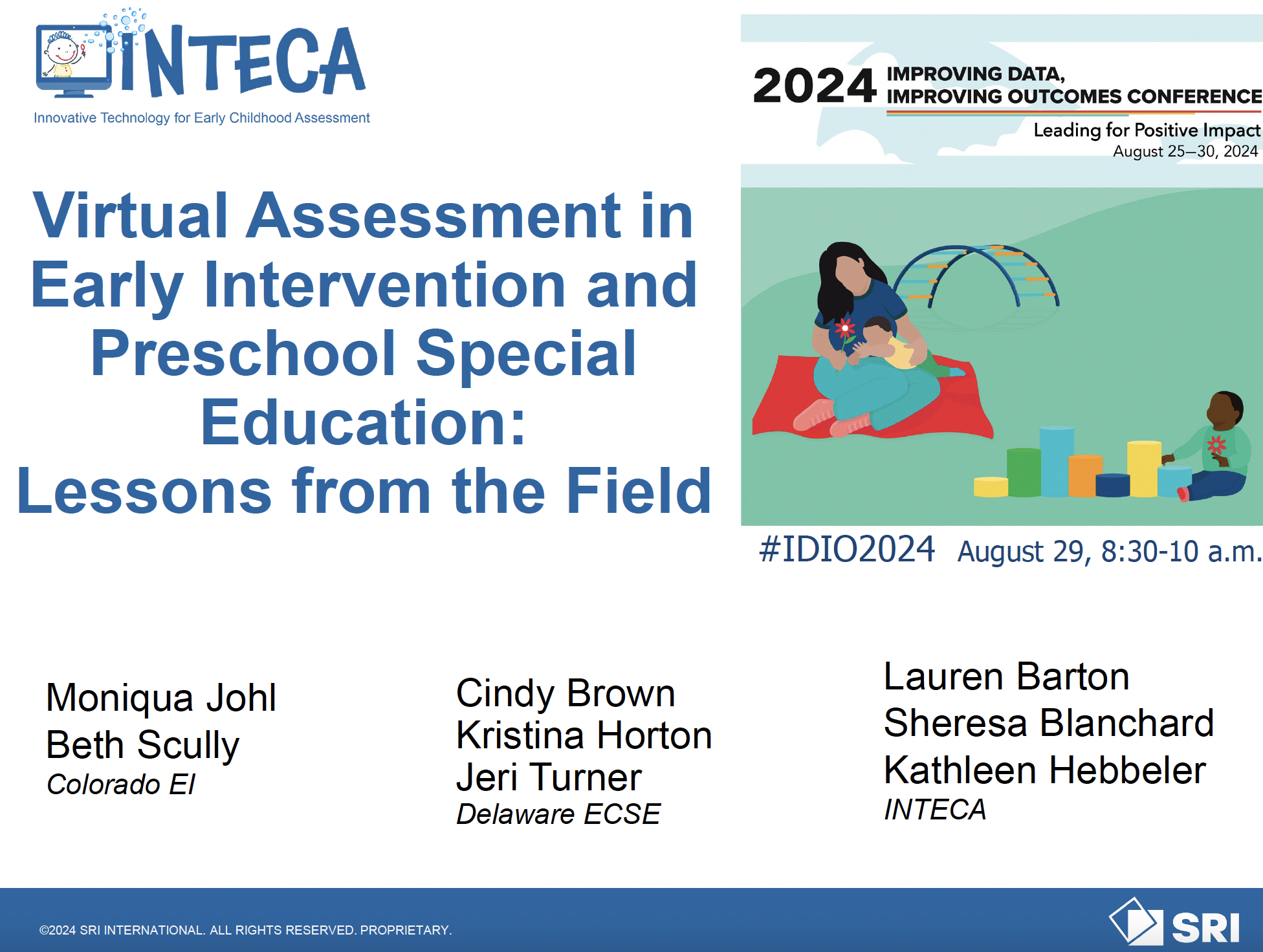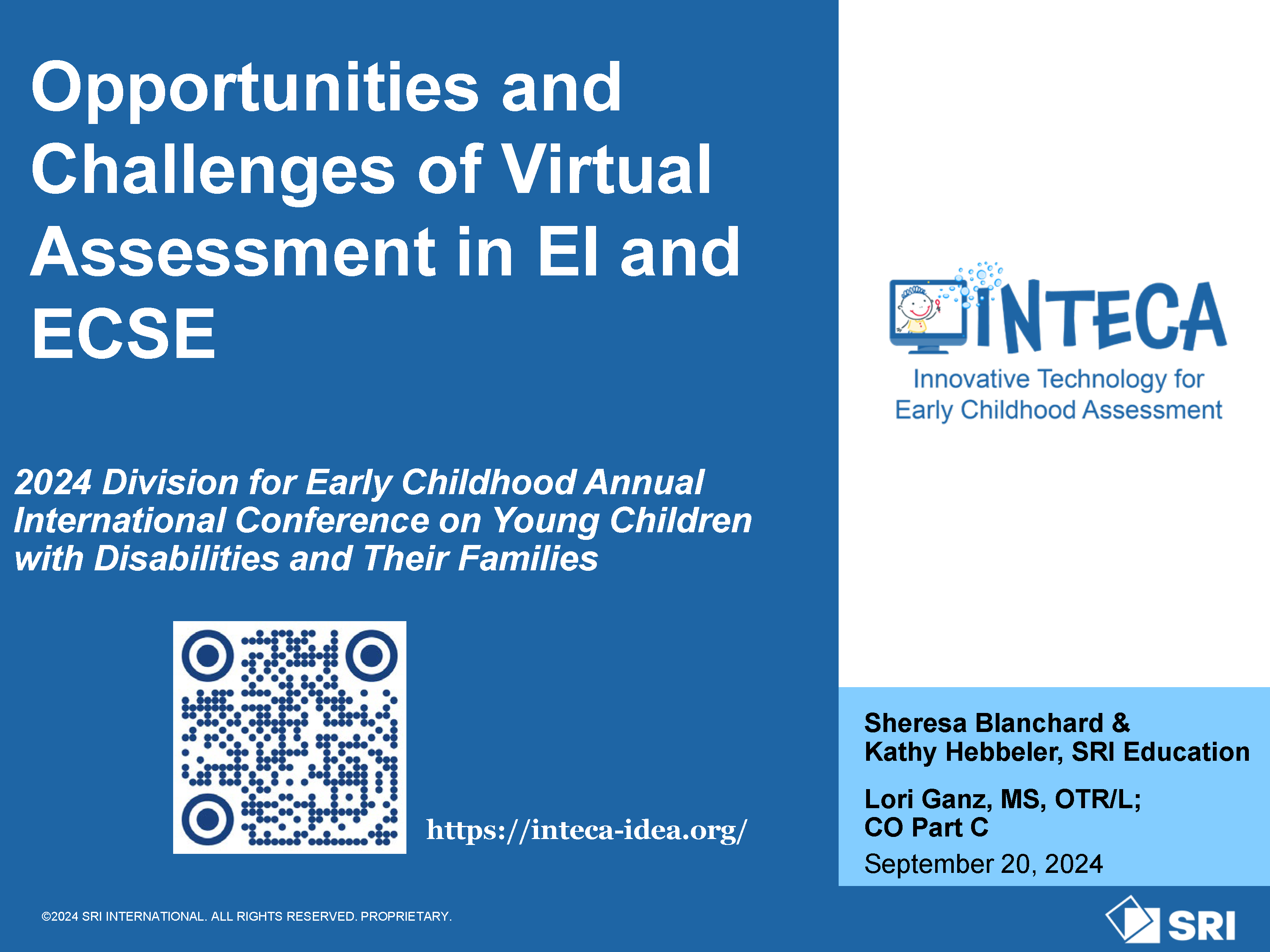Presented at the Bright Start International Conference in November 2024 by Kathy Hebbeler. This presentation explored how authentic assessment is being implemented virtually in early intervention and early childhood special education in the US. The presentation defined virtual assessment and described how and where it is being used in the US. Benefits of virtual assessment … Continue reading Conducting Virtual Authentic Assessment with Young Children with Disabilities
Examining the why, when, what, and how of effective virtual assessment; best practices for and state experiences with virtual authentic assessment; and addressing existing myths. We presented the results of interviews with Part C and Part B 619 state administrators, local administrators, practitioners, and families who identified the benefits of virtual assessment along with tips and guidance to support the process.



